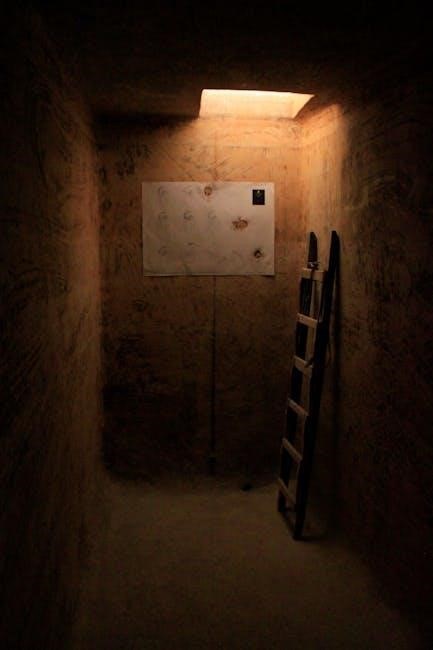dante and aristotle discover the secrets of the universe pdf
Dante Alighieri and Aristotle‚ two intellectual giants‚ explored the universe’s mysteries through literature and philosophy‚ blending faith and reason to uncover cosmic truths and human destiny.

1.1 Who Was Dante Alighieri?
Dante Alighieri‚ born in 1265 in Florence‚ Italy‚ was a renowned poet‚ writer‚ and philosopher. Best known for his epic poem The Divine Comedy‚ Dante is celebrated as one of the greatest authors of the Italian language. His works reflect a deep exploration of theology‚ morality‚ and human nature‚ blending medieval themes with classical influences. Dante’s writings not only shaped Italian literature but also left a lasting impact on Western philosophy and culture.
1.2 Who Was Aristotle?
Aristotle‚ born in 384 BCE in Stagira‚ Greece‚ was a philosopher‚ scientist‚ and student of Plato. His vast contributions spanned metaphysics‚ ethics‚ biology‚ and logic‚ shaping Western philosophy. Aristotle’s empirical approach and emphasis on observation and reasoning laid the groundwork for scientific inquiry. His works were central to medieval scholarship‚ influencing thinkers like Thomas Aquinas. Aristotle’s ideas about causality‚ the Prime Mover‚ and the pursuit of happiness remain foundational in understanding the universe and human existence.
1.3 The Intersection of Their Works
Dante and Aristotle’s works intersect through their shared exploration of the universe’s structure and humanity’s place within it. Aristotle’s philosophical ideas on ethics‚ metaphysics‚ and cosmology deeply influenced Dante’s Divine Comedy‚ particularly in its depiction of the afterlife’s hierarchical structure. Dante integrated Aristotle’s concepts of causality and the Prime Mover into his Christian framework‚ creating a synthesis of faith and reason. This intersection highlights their mutual quest to understand the cosmos and human destiny‚ blending ancient philosophy with medieval theology.

Dante’s Vision of the Universe
Dante’s vision of the universe‚ as depicted in The Divine Comedy‚ reflects a structured‚ hierarchical cosmos‚ blending Christian theology with philosophical insights‚ guiding the soul toward divine enlightenment.
2.1 The Structure of “The Divine Comedy”
The Divine Comedy is divided into three cantiche: Inferno‚ Purgatorio‚ and Paradiso‚ representing sin‚ purification‚ and divine enlightenment. The poem follows Dante’s journey through these realms‚ guided by Virgil and Beatrice. Its numerical structure—three kingdoms‚ 100 cantos—reflects Dante’s fascination with numerology and order. This design mirrors medieval cosmology‚ blending Aristotelian concepts of hierarchy and unity with Christian theology‚ creating a masterpiece of spiritual and philosophical exploration.
2.2 Dante’s Cosmology and Spiritual Journey
Dante’s cosmology‚ influenced by Aristotelian thought‚ portrays a geocentric universe with nine celestial spheres and an Empyrean realm of pure light. His spiritual journey in The Divine Comedy reflects this structure‚ ascending from Hell’s depths through Purgatory to Paradise. Each realm symbolizes moral and intellectual progression‚ blending Aristotelian philosophy with Christian theology. Dante’s ascent mirrors the soul’s quest for enlightenment‚ guided by reason and faith‚ culminating in a vision of divine unity and ultimate truth.
2.3 The Role of Aristotle in Dante’s Work
Aristotle’s philosophical ideas profoundly shaped Dante’s vision‚ particularly in The Divine Comedy. Dante drew on Aristotelian concepts of ethics‚ cosmology‚ and the soul to structure his narrative. Aristotle’s theory of the Prime Mover and the hierarchy of being influenced Dante’s depiction of the universe’s order. Additionally‚ Dante’s emphasis on reason and moral virtues aligns with Aristotelian thought‚ integrating philosophy with theology. Aristotle’s influence is evident in Dante’s portrayal of the soul’s ascent toward divine truth and intellectual enlightenment.
Aristotle’s Philosophical Framework
Aristotle’s philosophy‚ rooted in empiricism and reason‚ explored causation‚ the Prime Mover‚ and the natural world. His ideas on ethics‚ metaphysics‚ and the soul shaped medieval thought and beyond.
3.1 Aristotle’s View of the Universe
Aristotle envisioned the universe as a finite‚ orderly system with a central Earth‚ surrounded by concentric celestial spheres. He proposed the concept of the Prime Mover‚ an unmoved‚ eternal being that initiates all motion. Aristotle’s cosmology emphasized purpose and teleology‚ arguing that natural phenomena occur for specific ends. His ideas‚ though later challenged‚ profoundly influenced medieval and Renaissance thought‚ shaping understanding of the cosmos and humanity’s place within it for centuries.
3.2 The Four Causes and the Prime Mover
Aristotle’s philosophy introduced the Four Causes—material‚ formal‚ efficient‚ and final—to explain existence. The Prime Mover‚ an eternal‚ immaterial being‚ initiated motion without itself moving. This concept unified his cosmology‚ positing a purpose-driven universe. Dante drew inspiration from these ideas‚ integrating them into his spiritual framework‚ where the Prime Mover symbolized God‚ guiding souls toward divine love and enlightenment‚ reflecting Aristotle’s influence on medieval Christian thought.

3.3 The Influence of Aristotle on Medieval Thought
Aristotle’s ideas profoundly shaped medieval thought‚ particularly through his emphasis on reason and empirical observation. His works‚ reintroduced via Islamic and Jewish scholars‚ influenced theology‚ science‚ and philosophy. The Church incorporated Aristotelian concepts‚ blending them with Christian doctrine‚ while scholars like Thomas Aquinas harmonized faith and reason. This synthesis laid the groundwork for medieval intellectual advancements‚ embedding Aristotle’s legacy in Western philosophy and culture for centuries to come;

Comparative Analysis of Dante and Aristotle
Dante and Aristotle explored the universe through distinct lenses: Dante’s poetic theology and Aristotle’s empirical philosophy. Both sought truths about existence‚ blending reason and faith in unique ways.
4.1 Similarities in Their Worldviews
Dante and Aristotle shared a teleological understanding of the universe‚ viewing it as purpose-driven. Both saw a hierarchical structure‚ with Dante’s cosmos mirroring Aristotle’s concentric spheres. They believed in the immortality of the soul and its potential for elevation. Both emphasized reason as a tool to comprehend divine truths‚ blending faith and intellect. Their works reflect a synthesis of philosophical and theological thought‚ seeking to explain the universe’s order and humanity’s place within it.
4.2 Differences in Their Approaches to Knowledge
While both Dante and Aristotle sought to understand the universe‚ their approaches differed significantly. Aristotle relied on empirical observation and logical reasoning‚ believing in the power of human intellect to uncover truths through experience and deduction. In contrast‚ Dante’s understanding was deeply rooted in theology and divine revelation‚ as seen in his Divine Comedy‚ where spiritual themes and religious inspiration guide his exploration of reality. Their differing methodologies reflect the secular versus the sacred pursuit of knowledge.
4.3 The Synthesis of Faith and Reason

Dante and Aristotle exemplify the synthesis of faith and reason in their works. Dante’s Divine Comedy seamlessly integrates theological truths with philosophical inquiry‚ reflecting a harmony between religious faith and intellectual curiosity. Aristotle‚ while not religious‚ laid the groundwork for medieval thinkers to merge his empirical‚ rational framework with Christian theology. Their works demonstrate how faith and reason can coexist‚ enriching each other in the pursuit of understanding the universe and human existence‚ creating a holistic view of truth.
Historical and Cultural Context
In the medieval and Renaissance eras‚ Dante and Aristotle’s works bridged faith and philosophy‚ shaping intellectual thought amidst religious influence and the rise of humanism.
5.1 The Medieval Renaissance and Its Impact
The Medieval Renaissance sparked a cultural and intellectual revival‚ bridging the gap between ancient wisdom and Christian theology. Dante’s Divine Comedy exemplified this revival‚ blending theological themes with classical knowledge. Aristotle’s works‚ rediscovered during this period‚ deeply influenced scholasticism and shaped Dante’s cosmological views. This era laid the groundwork for the Renaissance‚ fostering a climate where faith and reason coexisted‚ inspiring future generations to explore the universe’s mysteries with renewed curiosity and intellectual vigor.
5.2 The Role of the Church in Shaping Intellectual Thought
The Church dominated intellectual life during Dante’s time‚ controlling education and shaping thought through theology. It promoted a curriculum blending faith and classical philosophy‚ with Aristotle’s works filtered through scholasticism. The Church’s influence ensured that intellectual pursuits aligned with religious doctrine‚ often suppressing ideas deemed heretical. This duality of preserving knowledge while asserting authority shaped the intellectual landscape‚ influencing Dante’s integration of Aristotelian ideas into his divine framework‚ reflecting the Church’s dual role as both guardian and gatekeeper of knowledge.
5.3 The Emergence of Humanism
Humanism emerged as a cultural and intellectual movement‚ emphasizing human potential‚ individualism‚ and classical learning. It shifted focus from religious themes to human-centered inquiry‚ influencing Dante’s works. Dante’s use of vernacular Italian in The Divine Comedy reflected Humanism’s accessibility. Aristotle’s ideas‚ revived during this period‚ were integrated into Humanist education‚ blending faith and reason. This movement laid the groundwork for Renaissance thought‚ celebrating human achievement and intellectual curiosity‚ while drawing from ancient wisdom to explore the universe’s secrets and humanity’s place within it.

Major Themes and Philosophical Contributions
Dante and Aristotle explored profound themes like sin‚ redemption‚ divine love‚ ethics‚ and metaphysics‚ shaping Western philosophy and literature with their enduring ideas and timeless insights.
6.1 The Nature of Reality
Dante and Aristotle offered distinct yet profound insights into reality. Dante depicted it as a divine‚ hierarchical cosmos‚ reflecting God’s will‚ while Aristotle viewed it as a rational‚ orderly system governed by natural laws and teleology. Both sought to reconcile the spiritual and physical dimensions‚ with Dante emphasizing allegorical truth and Aristotle focusing on empirical observation. Their works laid the groundwork for understanding reality as a harmonious‚ purpose-driven universe‚ blending faith and reason to explain existence and humanity’s place within it.
6.2 The Concept of the Soul
Dante and Aristotle explored the soul’s essence‚ with Dante portraying it as immortal and divine‚ guiding human morality and destiny‚ while Aristotle viewed it as the form of the body‚ emphasizing its potential for virtue and rational thought. Both saw the soul as central to human existence‚ with Dante linking it to spiritual ascent and Aristotle to ethical fulfillment. Their concepts remain foundational‚ bridging theology and philosophy to understand humanity’s inner nature and purpose.
6.3 The Pursuit of Happiness and Virtue
Dante and Aristotle both explored the pursuit of happiness and virtue‚ though their perspectives differed. Dante depicted spiritual happiness as union with God‚ while Aristotle emphasized ethical virtue and rational living. For Dante‚ virtue was a moral guide toward divine love‚ reflected in his Divine Comedy. Aristotle‚ in his Nicomachean Ethics‚ argued that happiness stems from living virtuously‚ achieving eudaimonia. Both thinkers saw virtue as essential to human flourishing‚ blending faith and reason to inspire ethical and meaningful lives.

The Influence of Dante and Aristotle on Later Thinkers
Dante and Aristotle profoundly influenced later thinkers‚ shaping Renaissance philosophy and beyond. Their ideas on faith‚ reason‚ and human nature remain foundational in intellectual history.
7.1 The Impact on Renaissance Philosophy
Dante’s poetic vision and Aristotle’s philosophical rigor deeply influenced Renaissance thinkers. Dante inspired a fusion of faith and reason‚ while Aristotle’s ideas shaped scientific inquiry and logic. Their works spurred debates on humanism‚ free will‚ and the pursuit of knowledge‚ fostering a cultural shift that emphasized individualism and intellectual curiosity. Together‚ they bridged ancient wisdom with modern inquiry‚ creating a foundation for the Renaissance’s intellectual and artistic flourishing.
7.2 The Role of Their Ideas in Modern Philosophy
Dante’s themes of divine love and moral responsibility continue to inspire existential and ethical inquiries‚ while Aristotle’s logical frameworks remain foundational in modern metaphysics; Their synthesis of faith and reason influences contemporary debates on humanism‚ free will‚ and the nature of reality. Both thinkers’ works bridge classical wisdom with modern philosophical inquiry‚ offering timeless insights into the human condition and the universe’s mysteries.
7.3 Contemporary Relevance of Their Works
Dante’s poetic exploration of the cosmos and Aristotle’s philosophical frameworks remain relevant in modern thought‚ influencing fields like philosophy‚ literature‚ and even science. Their ideas on ethics‚ cosmology‚ and humanism continue to inspire contemporary debates about meaning‚ morality‚ and the universe. The synthesis of faith and reason in their works resonates in today’s discussions on science and spirituality. Their legacy endures as a bridge between ancient wisdom and modern inquiry‚ offering timeless insights into existence and humanity’s place within it.
Dante and Aristotle’s enduring legacies illuminate the synthesis of faith and reason‚ guiding humanity’s quest for meaning and understanding the universe through timeless philosophical and poetic insights.

8.1 The Legacy of Dante and Aristotle
Dante Alighieri and Aristotle left an indelible mark on human thought‚ blending theology‚ philosophy‚ and art. Dante’s The Divine Comedy remains a literary and theological masterpiece‚ while Aristotle’s works laid the foundation for centuries of scientific and philosophical inquiry. Their ideas‚ though rooted in their time‚ continue to inspire modern interpretations‚ bridging the gap between faith and reason. Together‚ they exemplify the enduring quest for understanding the universe and humanity’s place within it.

8.2 The Timeless Appeal of Their Ideas
Dante’s exploration of moral and spiritual themes in The Divine Comedy continues to resonate with universal human experiences. Aristotle’s philosophical frameworks and empirical approach have shaped centuries of scientific and ethical thought. Their works bridge faith and reason‚ offering insights into existence and the cosmos. This synthesis remains vital in contemporary discussions‚ ensuring their ideas endure as foundational to understanding human and divine realms across disciplines.
8.3 Final Thoughts on Their Contributions
Dante and Aristotle’s works have left an indelible mark on human understanding‚ blending spirituality‚ philosophy‚ and science. Dante’s Divine Comedy remains a masterpiece of literary and theological insight‚ while Aristotle’s empiricism and logical frameworks laid the foundation for Western philosophy. Their synthesis of faith and reason continues to inspire scholars and thinkers‚ ensuring their ideas remain central to exploring the mysteries of existence and the cosmos.
